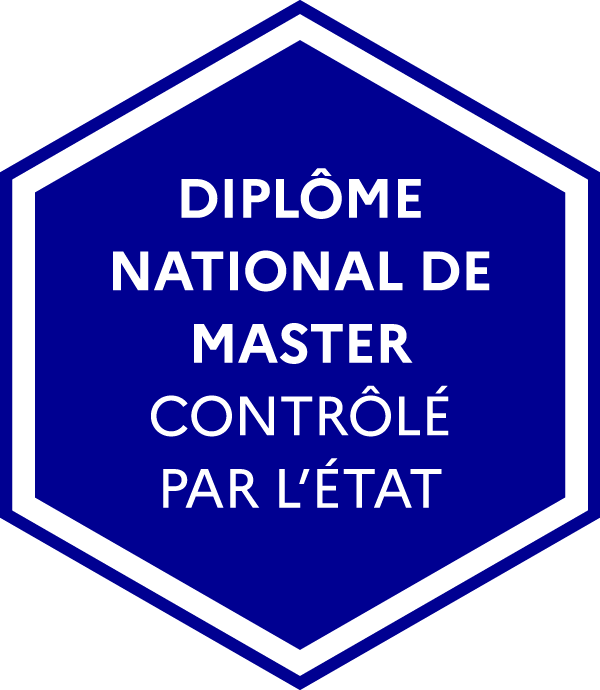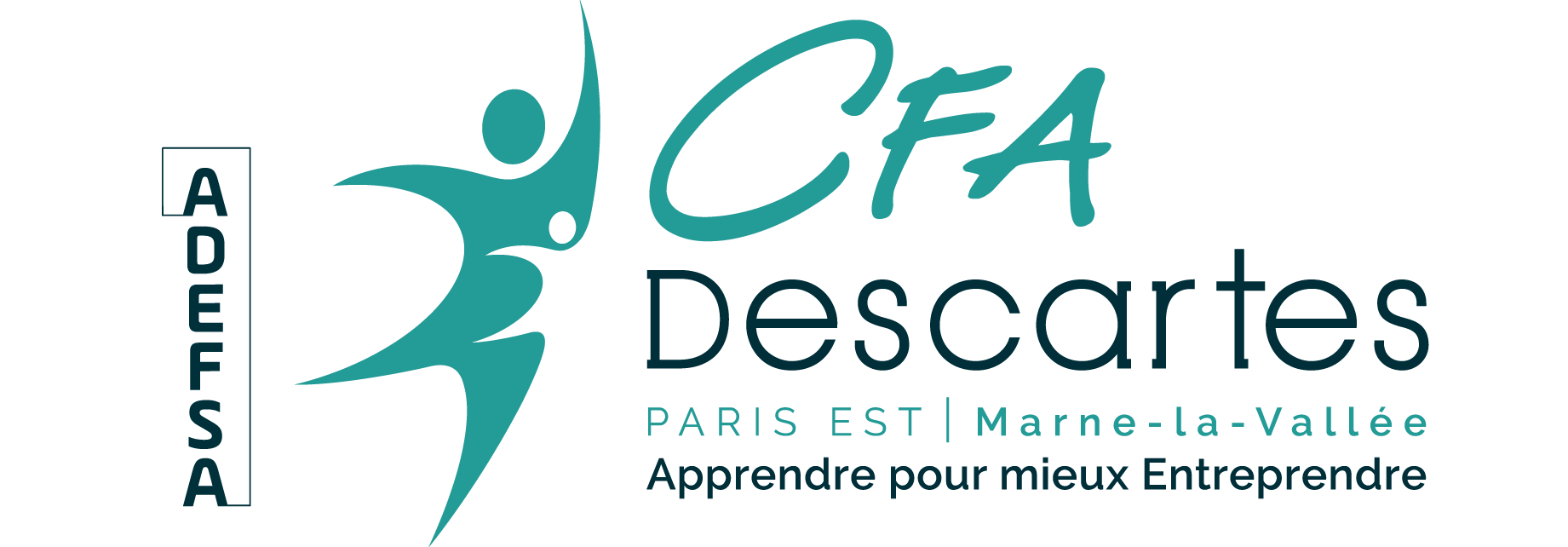Master's degree Strategic intelligence, Risk Analysis and Territories


Entry requirements
The second-year Master’s in Strategic intelligence, Risk Analysis and Territories is open to students who have completed a first-year Master’s (and in particular the first-year Master’s course in Economic Intelligence of Université Paris-Est Marne-la-Vallée / the Ile-de-France Institute of Service Engineering) or another two-year Master’s degree.
It is also open to experienced professionals through the validation of professional skills or acquired experience or as a lifelong learning course.
For all applicants, selection is largely based on the demonstration of career objectives in line with the issues covered in the second-year Master’s in Strategic Intelligence, Risk Analysis and Territories.
Benefits of the program
- The course draws on a network of recognised professionals and experts, ensuring that it is firmly rooted in the professional world.
- The M2 Strategic intelligence, Risk Analysis and Territories course is apprenticeship-based (12-month work-study programme, 4 days a week in the host organisation). It also welcomes lifelong learning applicants (civilians and military personnel, professionals) every year.
NB: the M1 course in Economic Intelligence of Université Paris-Est Marne-la-Vallée / the Ile-de-France Institute of Service Engineering can also be followed as part of a work-study programme and students can sign work-study agreements for both years.
Acquired skills
- Understanding and deciphering French and foreign economic intelligence systems and the issues of cyber and data challenges.
- Implementing, managing and running a monitoring system.
- Understanding the principle of risk analysis and management and territorial strategy.
- Setting up and managing a crisis unit.
- Identifying information risks, influence and counter-influence strategies and lobbying.
International
Cooperation and exchange projects through international exchange programmes at European universities and schools, exchanges on the theme of serious games with international courses and laboratories.
Capacities
25
Course venue
Your future career
Graduate employment is facilitated by the professionalism of teaching (over 50% of teachers from companies and institutions) and the apprenticeship-based approach to learning. The course prepares future professionals in business continuity; safety and risk management; monitoring / analysis for large industrial groups (automobile, defence, pharmaceuticals, chemistry, etc.); data security; strategic analytics; consultancy in these fields (often in large consulting firms).
Professional integration
The course leads to careers in business intelligence in the broadest sense:
- Consultant in economic intelligence
- Economic intelligence manager
- Strategic monitoring manager
- Economic intelligence analyst
- Monitoring officer
- Knowledge Manager
- Risk Manager, BCP and/or security manager
- Information Manager
Study objectives
The Strategic intelligence, Risk Analysis and Territories curriculum is based on the “Matignon” reference framework for economic intelligence professions, drawn up under the direction of Alain Juillet (2006).
The aim of the course is to train professionals capable of advising or guiding organisations in the implementation of economic intelligence methods. It covers different types of intelligence, levers of influence, risk management and the overall security of organisations in an international context that takes account of the territorial dimension.
Major thematics of study
Economic and strategic intelligence, information engineering, information and communication science, monitoring, data (big, small, smart, etc.), knowledge management, risk management, crisis management, influence, lobbying, digital communication strategies, reputation in the age of social media, intangible assets, territorial intelligence and marketing.
Calendar
Classes are held every Thursday from October to July plus a six-week block during the year.
Options
Students may attend certain classes from other second-year Master’s programmes.
Semester 3
| Courses | ECTS | CM | TD | TP |
|---|---|---|---|---|
|
UE 1 - Veille et information élaborée
The first program unit deals with information research, competitive intelligence methods and tools, and the intelligence cycle. Students get to learn how to collect process and provide clients with accurate quality information and analysis, easy to understand and visualize. They also get insights on Big data. | 9 | |||
|
Veille : sources, stratégie, outils et méthodologies
Teaching language FRANÇAIS / FRENCH | 3 | 28h | ||
|
Outils de production d'information élaborée et cartographie décisionnelle
Teaching language FRANÇAIS / FRENCH | 3 | 28h | ||
|
Enjeux et traitements des datas (big, smart, etc.)
Teaching language FRANÇAIS / FRENCH | 3 | 28h | ||
|
UE2 - Intelligence économique
This program unit is designed so that students understand French competitive intelligence system as well as the different institutions, cultures and strategies of international organizations and foreign countries, leaders in “CI”. Classes examine the tools and steps of competitive and business intelligence project management: analysis of clients’ needs, specifications’ design, mobilization of actors, implementation, evaluation). | 9 | |||
|
Dispositif d'IE, renseignement et guerre économique
Teaching language FRANÇAIS / FRENCH | 3 | 10.5h | 10.5h | |
|
Dispositif d'IE d'entreprise, affrontements concurrentiels
Teaching language FRANÇAIS / FRENCH | 3 | 10.5h | 10.5h | |
|
Analyse et aide à la décision
Teaching language FRANÇAIS / FRENCH | 3 | 10.5h | 10.5h | |
|
UE 3 - Influence
The Influence program unit apprehends issues such as media and information in an attention economy, with a focus on specific topics such as fact-checking, fake news, war news, infomediation. It also addresses the issues of identity, e-reputation, influencers and lobbying strategies in a web 2.0. context. | 9 | |||
|
Médias, information, économie de l'attention, infoguerre
Teaching language FRANÇAIS / FRENCH | 3 | 14h | ||
|
Communication web : identité, réputation, médias sociaux
Teaching language FRANÇAIS / FRENCH | 3 | 21h | ||
|
Influence, influenceurs et lobbying
Teaching language FRANÇAIS / FRENCH | 3 | 21h |
Semester 4
| Courses | ECTS | CM | TD | TP |
|---|---|---|---|---|
|
UE 4 - Gestion des risques et gestion de crise
This teaching unit is aimed to allow students acquire skills in the field of risk analysis and mitigation. They also discover how to ensure business continuity / BCP and how to set up and manage a crisis committee, with a strong emphasis on the mechanisms of crisis communication. | 9 | |||
|
Sécurité de l'information, cybersécurité et cyber-intelligence
Teaching language FRANÇAIS / FRENCH | 3 | 14h | 14h | |
|
Analyse des risques et continuité d'activité
Teaching language FRANÇAIS / FRENCH | 3 | 14h | 14h | |
|
Gestion de crise
Teaching language ANGLAIS / ENGLISH | 3 | 14h | 14h | |
|
UE 5 - Intelligence territoriale
This teaching unit should help students understand competitive intelligence issues on precise local contexts, as well as identify and map all stakeholders and networks involved on a specific territory. | 9 | |||
|
Enjeux, acteurs et pilotage d'un territoire
Teaching language FRANÇAIS / FRENCH | 4 | 14h | 14h | |
|
Sûreté et sécurité des Territoires
Teaching language FRANÇAIS / FRENCH | 3 | 10.5h | 10.5h | |
|
Compétitivité des territoires
Teaching language FRANÇAIS / FRENCH | 2 | 7h | 7h | |
|
UE 6 - Mémoire et stage
The 6th program unit is designed as a professional springboard. Its main element is a lenghty work experience (apprenticeship or professionalization contract). This unit is jointly assessed by academic tutors and professional tutors. This professionalisation leads to the preparation of a master thesis about specific operational issues, defended by the student. | 9 | |||
|
UE7 - Initiation à la recherche, conférences et séminaires de mise en situation professionnelle
By participating in a science popularization project, the organization of conferences with professionals, serious games, transplanted classes and intensive seminar, students develop their technical as well as relational skills, their event communication methods and benefit from networking-prone work environments. | 6 | |||
|
Séminaire de mise en situation professionnelle
Teaching language FRANÇAIS / FRENCH | 5 | 49h | ||
|
Conférences Techniques et Scientifiques communes AMDI/ILMS
Teaching language ANGLAIS / ENGLISH | 1 | 21h |
Aurélie RAMAND
Isabelle LE GOUILL
Partners

- Partenariats avec des institutions de la Défense et de la Sécurité. - Visites et conférences de plusieurs organismes nationaux de premier plan : Direction de la Sécurité civile, Ministère des Affaires Etrangères, Ministère de l'Intérieur, etc. (A noter : des mesures de sécurité strictes décidées et gérées par ces institutions encadrent ces visites).

